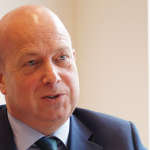As fellow Magic Circle firm Freshfields Bruckhaus Deringer targets the US market, Clifford Chance’s US leadership is seeking to upscale its offering in the Americas, and are actively looking to recruit fresh talent across all levels, from associate to partner. But, such growth, explains Americas managing partner Evan Cohen and Washington DC managing partner David DiBari, will be achieved without breaking away from the firm’s traditional remuneration system.
With 200 lawyers based in New York, 50 in Washington DC, and 15 in Sao Paulo, the duo demonstrate similar ambitions to peers. Recent weeks have seen Freshfields hit headlines over its aggressive hiring strategy to boost its US offering, with talk circulating that the firm has broken its lockstep to top up salaries. Such modification, according to sources, is a strategy employed to better able the firm to secure senior talent. Cohen and DiBari, however, have no such plans to request alterations and firmly assert the benefits of keeping with tradition.
‘We won’t break lockstep, we see it as a strength,’ says DiBari. ‘It means we’re collegiate and collaborative. Clients don’t want partners fighting over work. The system ensures all the incentives are in the right place and deliver the right people to them wherever that may be at any time. If I were a general counsel, I would pick this system over any other in a heartbeat because I know it’s putting my interests first’.
The firm is in good stead to make headway on such plans, after recording its best-ever financial year, with global revenues up 7% to £1.36bn and the Americas generating £152m for the pot.
Cohen in particular cites the reinsurance, healthcare and pharmaceuticals, retail and consumer goods, and aerospace sector groups as targets for potential growth. Notably, his and DiBari’s objectives mirror a key mandate outlined by global managing partner Matthew Layton during his election manifesto last year and when he spoke to Legal Business in July, this being his desire to increase US revenues.
‘Matthew is very close,’ says Cohen. ‘He gets it. He’s ambitious for the firm, and for the Americas. We’re totally aligned. He would like the US to be a larger percentage of global revenue in a targeted, thoughtful way where people buy into lockstep and the culture of the firm. We want to get the message out and recruit people who will fit well into this model’.
Pay packets aside, the pair are equally keen to highlight CC’s current offering as an attractive proposition to potential recruits. Ranked top tier in asset finance and leasing, real estate investment funds and financial products, heavyweight deals since last year includes partners Larry Medvinsky, Jason Myers and Rich Catalano advising the Empire State Realty Trust, owner of the iconic Empire State Building, on its $929m IPO, while litigation partner Chris Morvillo is currently advising Autonomy founder Mike Lynch against allegations of financial impropriety and misrepresentation made by Hewlett Packard (HP), which acquired Lynch’s software company in 2011 for $11bn. Significant hires includes Debevoise & Plimpton asset finance partner Emily DiStefano last May and insurance and M&A corporate partner Gary Boss from the now defunct Dewey & LeBoeuf in 2012.
For all the talk of expansion, Cohen and DiBari point to the stress placed on the law firm model post-Lehman, citing examples like Dewey and now the well-publicised struggles of Bingham McCutchen, a shift that has ultimately created greater opportunities for firms better able to adapt to an intensely competitive legal market. Cohen says: ‘Clients want greater efficiency at lower prices – you’ll have a stratification of firms that will strive and others will struggle to find their place. That may create opportunities for firms like us, quite frankly, to hire people looking for something more interesting’.
sarah.downey@legalease.co.uk











